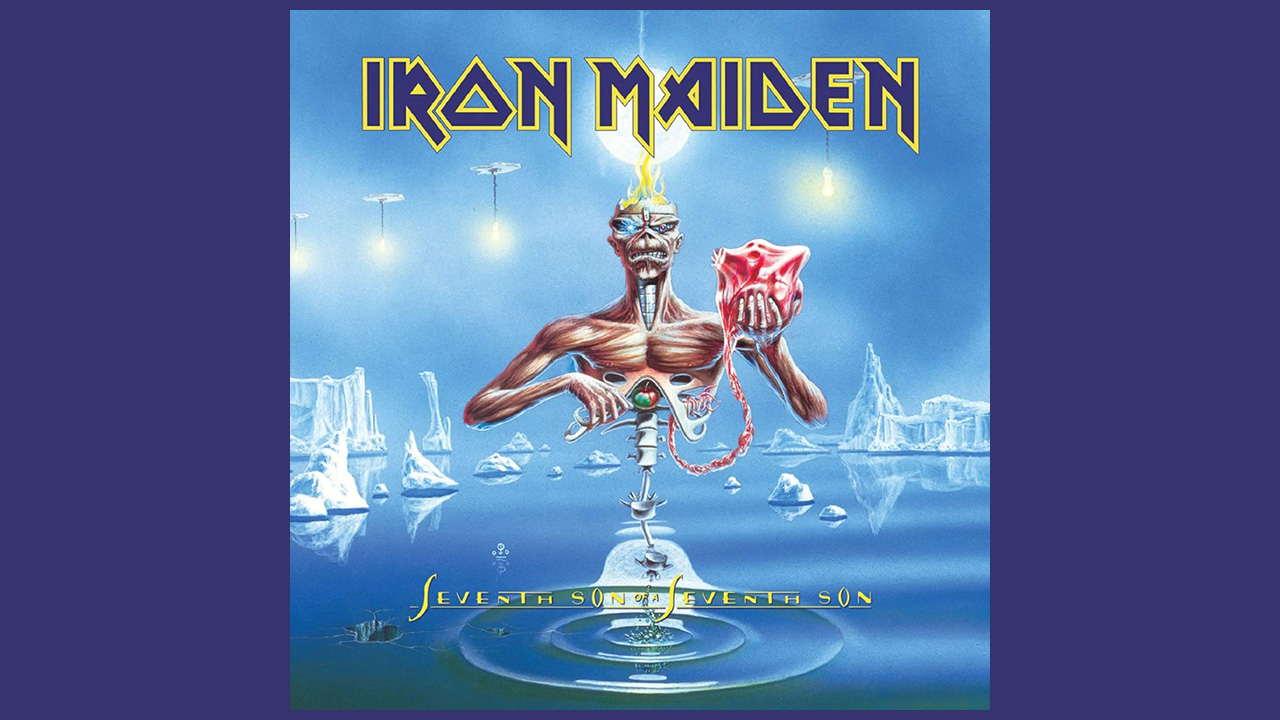“Not even in the territory of prog metal – closer to dyed-in-the-wool prog rock”: Iron Maiden’s Seventh Son Of A Seventh Son remains their best prog album
A good-versus-evil concept story featuring keyboards and a nine-minute title track set the scene for records that would arrive in future decades

In April 1998, Iron Maiden’s seventh album, appropriately entitled Seventh Son of a Seventh Son, reached the No. 1 spot in the UK charts. In 2010 Prog argued the case that, regardless of public perception and the material to follow, it was clearly a prog album – and clearly their best prog album.
Iron Maiden’s flirtations with progressive music, writ large over their 2010 album The Final Frontier and 2021's Senjutsu, should come as no surprise to longtime followers of the East End metalheads’ career.
Aside from the fact that both bassist Steve Harris and vocalist Bruce Dickinson are massive prog rock fans, one could point to the band’s 1983 cover of Jethro Tull’s Cross-Eyed Mary, or the hefty progressive inclinations audible on 1999’s Brave New World album as further proof.
But nothing sits better within Maiden’s prog canon than their 1988 release Seventh Son Of A Seventh Son. A concept work – toying with those fine old adversaries good and evil, and throwing in elements of mysticism, reincarnation and the afterlife by the bucketload – Seventh Son… told the tale of a mythical child (the seventh son of a seventh son, no less) who possessed clairvoyant powers.
It wasn’t just the conceptual nature of the 8-track title that shoved it further into prog territory than they’d yet delved. Seventh Son… was also the first Maiden album to feature keyboards, rather than the guitar synths they”d used on previous albums. Here they were handled by Michael Kenney, Steve Harris’ bass tech and sometime live keys player for the band.
Musically, the album developed sonic themes that Maiden had introduced with 1986’s Somewhere In Time album, although no one could have envisaged quite how prog the band would take their sound.
The immense success of metal-orientated lead singles Can I Play With Madness and The Evil That Men Do (still two of the band’s finest) helped offset possible fan unrest, but one can’t deny the overt progressive flourish of opener Moonchild as it segues into Infinite Dreams.
Sign up below to get the latest from Prog, plus exclusive special offers, direct to your inbox!
Further still, the nine minute-plus title track – all backed up more than ably by the Murray/Harris penned The Prophecy and Harris’s own The Clairvoyant – places Seventh Son Of A Seventh Son not even in the territory of prog metal, but closer to dyed-in-the-wool prog rock.
None of this bothered the band’s fans however, with Seventh Son... being the second Maiden album (behind the groundbreaking The Number Of The Beast) to crash into the national album charts in top spot. And it remains their best album to date by far.
Writer and broadcaster Jerry Ewing is the Editor of Prog Magazine which he founded for Future Publishing in 2009. He grew up in Sydney and began his writing career in London for Metal Forces magazine in 1989. He has since written for Metal Hammer, Maxim, Vox, Stuff and Bizarre magazines, among others. He created and edited Classic Rock Magazine for Dennis Publishing in 1998 and is the author of a variety of books on both music and sport, including Wonderous Stories; A Journey Through The Landscape Of Progressive Rock.

